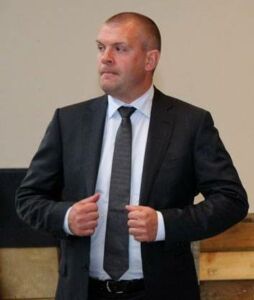News
Bjarne Corydon leaves Danish politics for top position at McKinsey
This article is more than 10 years old.
The politician has been appointed the global director for the consultancy center

New year, new challenges (Photo: Lars Schmidt)
Bjarne Corydon, who was finance minister under Helle Thorning-Schmidt’s government from 3 October 2011 to 28 June 2015 has announced that he has accepted a top position at consulting firm The McKinsey Center for Government (MCG).
Great opportunities
Berlingske reports that the politician, who has been a longstanding member of Socialdemokraterne, will be joining the center as their new global director. He will be tasked with helping to develop the public sector in many countries and his first working day is 1 February 2016.
“It is a position with great opportunities to make a difference in a field that I am passionate about. That is how we get the most out of our human resources, and how we get most value for the money we invest in the public sector,” he told Berlingske.
Don’t look back in anger
Corydon, who took center stage in the Danish political scene during the previous government’s controversial sale of Dong shares to the US investment bank Goldman Sachs, has stressed that he is not leaving Danish politics with a sense of disappointment or anger.
“I have been deeply involved in politics – I have always thought that politics is important. I still think so, even though I am no longer active. But I do not think it’s a case of “once a politician always a politician”. I want to do good in other areas and learn,” he said.










































